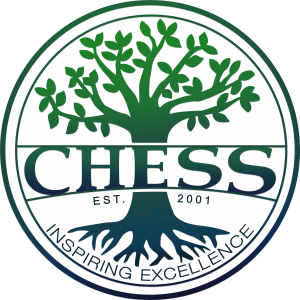How a simple peanut butter and jelly technical writing assignment set the stage for my successful career in software development.
John Jenkins and Peanut Butter and Jelly Sandwich Instructions
In high school (2003-2007) I took multiple writing classes with John Jenkins through CHESS. Topics ranged from essays about slavery and the California Gold Rush to news articles. I particularly enjoyed the news articles because at the time I was set on being a photojournalist and working for National Geographic. But of all the assignments, one stood out—a technical writing paper instructing the reader how to make a peanut butter and jelly sandwich.
On first hearing of the assignment I assumed it would be an easy task. I had crafted many delicious peanut butter and jelly sandwiches by that time. But upon completing and handing in the assignment I quickly realized my error. It turns out that writing a sequential step-by-step guide instructing someone to complete a task they have no experience with is challenging. If you need proof just watch YouTuber Josh Darnit literally follow the instructions his children wrote for him. It turns out that John Jenkins was not only teaching our class to write. He was teaching empathy and understanding for our audience.
Transition from Journalism to Interactive Media
After graduating from high school, I enrolled at James Madison University as a journalism major. But the year was 2007—a particularly tough time for journalism. The digital revolution was disrupting media job descriptions and roles. After finding journalism at the bottom of one too many career option lists, I switched my major to Interactive Media—a mixture of website design, development, and digital storytelling. The writing skills I gained from John Jenkins continued to serve me well. I received multiple compliments of my writing ability from my professors.
After college I continued to make transitions—from a short stint as a professional western horse trainer to a production designer at a church creating print marketing pieces for church events and gatherings. Seven years ago, I moved to Nashville, TN intent on becoming a professional songwriter. But I finally found a long term fit in software development—building websites and web applications. During that time, I wrote mostly in a business context (e.g. emails to bosses or coworkers, chat messages, etc.). But that changed drastically in my last job.
My Writing Skills Make a Comeback
In 2017 I was working for the Lewis Communications marketing agency. As our team grew, I noticed a lack of technical documentation. In software development—most of which takes place on a computer—technical documentation is an essential tool to onboard new team members and to learn new languages and frameworks. Lack of documentation is a common complaint among software developers. In fact, the 2019 HackerRank Developer Skills Report found that “badly written documentation” is the number one pet peeve for junior software developers.
After repeatedly noticing a lack of documentation, I began putting my writing skills to work. Each time I found myself verbally repeating instructions, I would write them down, send them to the person who had asked for my help, and ask for their feedback. Instead of constantly repeating myself, I began adding documentation to the team knowledge base.
My fellow team members began sharing the documents. Suddenly a valuable skill that was once dormant changed my career trajectory almost overnight. Coworkers began referring to me as “the documentation guy.” In addition, because I didn’t have to repeat instructions to new team members, I began completing tasks more efficiently.
Suddenly a valuable skill that was once dormant changed my career trajectory almost overnight.
Technical Writing is an Industry Wide Challenge
Two years ago, I joined Ramsey Solutions—financial expert Dave Ramsey’s company. The organization was much larger than my previous employer—at the time over one hundred team members in software development. Because of this I assumed that I would be one of many software developers with strong experience in technical writing.
To my surprise, the need for technical documentation was actually much greater than at my previous employer—more team members means more knowledge to capture in writing. Only later did I realize that every organization in the software industry wrestles with this problem—even large tech companies like Google or Spotify. In 2017, the Open Source Survey found that a majority of developers highly value technical documentation but more than half (over 60%) don’t regularly contribute to or write technical documents.
At Ramsey there were multiple individuals writing documentation. But documents were strewn across multiple systems. There was no standardization in writing nor in knowledge management. But there was a desire to improve.
For the next two years I invested countless hours to help make documentation a core value for software developers at Ramsey. I wrote countless documents. I helped start and maintain a project that consolidated all documentation into a central system accessible by all team members. And I helped pioneer an internal question and answer forum where developers use the power of writing to get answers to their technical questions.
In addition, I spent the last two years improving my skill as a technical writer. I read articles and books. I took courses. And I lead a technical writing book study that helped standardize the expectations around what makes a quality technical document at Ramsey.
Writing is the Essential Skill for Knowledge Work
Technical writing now takes up a large portion of my day. And I’m often asked to review documents written by other team members. I would not be where I am today without John Jenkins. Sure, I had quality writing instructors in college. But John gave me a strong writing foundation to build on.
I would not be where I am today without John Jenkins. Sure, I had quality writing instructors in college. But John gave me a strong writing foundation to build on.
Business and technical writing has never been more essential to success at work. We are now in a knowledge economy—where value is not measured by what you physically create but by what you know. If you can clearly communicate what you know in writing, you will continue to succeed.
Ryan Payne is a software developer at Ramsey Solutions and an independent singer-songwriter. Learn more about him at https://www.ryanbrookepayne.com.




0 Comments